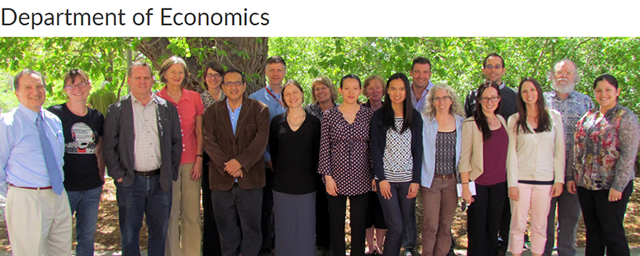
Economics ETDs
Publication Date
Fall 11-15-2020
Abstract
The subject of this dissertation is the effect of changing weather patterns on human fertility in Chad, Sahelian Africa. There is a body of literature on the effect of extreme weather events-usually associated with large-scale mortality-and human fertility. However, there is less of a body of literature on the effects of less extreme changing weather patterns and human fertility. Chad has known substantial warming since the late 1960s, hence I use rising heat as a proxy for changing weather patterns. Using GIS-coded fertility and weather data, I look for correlations between the birth rate and the number of days in a month above 31 degrees Celsius, while partitioning data by climatic zone and by level of staple crop intensity. I then run the same models with sorghum and millet (Chadian staple crops) as the dependent variables. I find a general pattern that the same planting season high temperature days that have a negative effect on the birth rate, also have a negative effect on both sorghum and millet yields that is driven by the Sahel region. This accords with my adapted Beckerian theoretical model, but there are other more ambiguous results.
Degree Name
Economics
Level of Degree
Doctoral
Department Name
Department of Economics
First Committee Member (Chair)
Dr. Kira Villa
Second Committee Member
Dr. Janie Chermak
Third Committee Member
Dr. Alok Bohara
Fourth Committee Member
Dr. Kathy Powers
Language
English
Keywords
Chad, Becker, Weather, Sahel, Fertility, Demographics
Document Type
Dissertation
Recommended Citation
Organ, Jake. "Chad: Human Fertility, Crop Production and Changing Weather Patterns." (2020). https://digitalrepository.unm.edu/econ_etds/122
